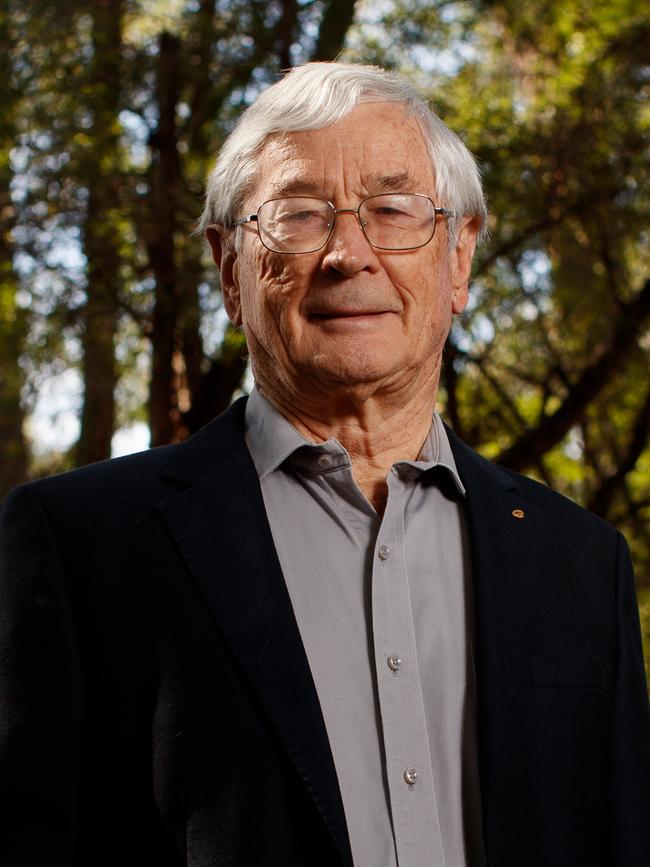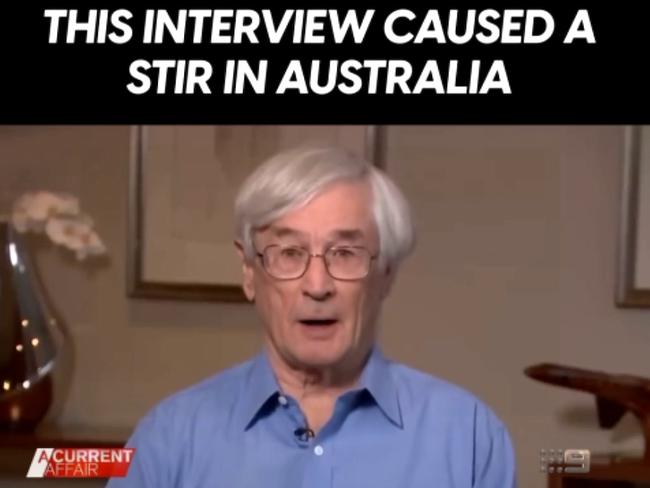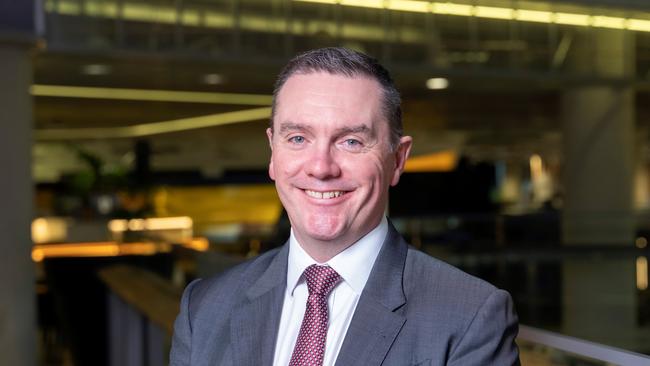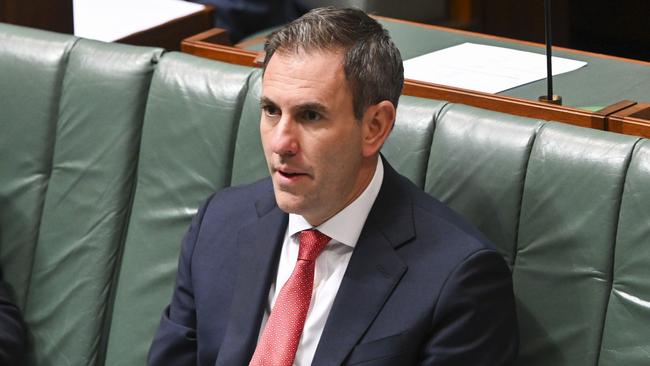Dick Smith, Gina Rinehart demand Mark Zuckerberg act on Facebook scams
The mining billionaire and the entrepreneur are sick of their images being used on Facebook to rip off Australians.
Mining billionaire Gina Rinehart and entrepreneur Dick Smith have asked Facebook founder Mark Zuckerberg to take personal charge of rooting out scam impersonation ads on the platform that still plague the pair.
In a letter to Mr Zuckerberg, who is chairman and chief executive of Facebook owner Meta, Mrs Rinehart and Mr Smith said that since Mrs Rinehart first wrote to the tech mogul a month ago there had been “no discernible improvement in curtailing these malicious activities”.
“In the past month since our initial communication, new scams have emerged, and existing ones remain active,” the pair said in the December 10 letter.


Mr Smith has recently been impersonated in a deepfake video ad while Mrs Rinehart says a scam ad featuring her and TV presenter Tracy Grimshaw has been active on Facebook since January 24 “despite numerous reports to your platform”.
“Despite diligent efforts to report fraudulent content, it is disheartening to note the persistence of these scams, some of which have remained active on Meta platforms for extensive periods despite multiple reports,” Mrs Rinehart and Mr Smith said in the letter.
Separately, iron ore magnate Andrew “Twiggy” Forrest is taking legal action against Facebook’s owner, Meta, for allegedly failing to stop scams featuring him.
The Australian Competition and Consumer Commission is also suing Meta, alleging it engaged in false, misleading or deceptive conduct by publishing the scam ads featuring famous Australians.

Australians lost a record $3.1bn to scams last year, up 80 per cent on the previous year.
Scam ad examples included in Mrs Rinehart and Mr Smith’s latest letter show scam ads depicting Mrs Rinehart, Mr Smith and Mr Forrest as having created “an innovative project that aims to improve the quality of life for every Australian” have been running on Facebook since last month.
“These fraudulent schemes continue to exploit the trust of millions of Australians, using the names and reputations of successful and well-regarded individuals, including ourselves and several other prominent figures, to deceive unsuspecting users,” Mrs Rinehart and Mr Smith said in the letter.
They said that over the same period there was one scam featuring Mrs Rinehart on Elon Musk’s X, formerly known as Twitter, compared to “in excess of 750” on Facebook.
“Mr Zuckerberg, we ask, could you and your team at Meta prioritise this critical issue and take decisive steps to act in the interests of the safety and integrity of your platforms,” they said.
Meta has been contacted for comment.
DARK SIDE OF AI
Banks are gearing up for an AI arms race with fraudsters who are increasingly using social media, online shopping and subscription data to scam Australians.
The automated technology has reduced the amount of work needed to develop a convincing deepfake profile so significantly, rich-listers and corporations could soon be overtaken as top targets.
Deepfake technology that can convincingly impersonate an individual’s voice has already been used in a scam video of Dick Smith circulated on social media.


Experts predict more AI-powered scams to come and banks are pouring resources into using the technology to detect ripoffs at the same time as criminals find ways to exploit it for new scams.
NAB’s head of investigations and fraud, Chris Sheehan, said that the images of famous people would increasingly be “spoofed using AI to encourage people to invest in different types of investment schemes or other types of scam opportunities”.
“We’ve seen a little bit of that already.”
Beyond Bank chief customer officer Nick May said scammers were using AI to build profiles based on our social media and online spending habits.
“Scammers use this information in conjunction with recent data leaks to identify our potential weaknesses and habits and then take advantage of these,” he said.
“This will only get more sophisticated in the future as we all continue to put more information out there for scammers to use, but the good news is that companies are also using AI to combat scammers.”
Mr Sheehan said that rich-listers and corporations would be first to be at risk because the pay-off was far larger for the amount of work involved working up a convincing deepfake profile.
“What I can see happening is very targeted, high value attacks where AI is utilised to target say, a high wealth individual or corporate or C-suite person in a variant on the CEO fishing spear phishing attacks,” he said.
A spokesperson for the Australian Banking Association said that AI could improve customer service but “deepfakes are the dark side of AI”.
“With so many of these type of scams being served up via social media and telecommunications platforms, it is essential that all sectors ramp up their efforts in the fight against scammers,” the spokesperson said.
KnowBe4 security awareness advocate Jacqueline Jayne said AI was being used to create deep fake audio and videos, “generate increasingly convincing phishing emails and create compelling conversations with potential victims”.
“The quality of the deep fake audio and video material is incredible and nearly impossible to spot,” she said.

Mr Smith, Treasurer Jim Chalmers and billionaires Gina Rinehart and Andrew Forrest are among the latest subjects of fake and fraudulent videos.
Ms Jayne said the meteoric rise of generative AI, which powered ChatGPT and other new platforms, had added a new level of sophistication to scams.
“The fact that this technology means that we can no longer trust anything or anyone any more is concerning,” she said.
“The opportunity for people without technical skills with criminal intent to gain access to malicious tools or techniques means that the scope of cybercrime is increasing while making their work easier, more sophisticated, and more automated.”
International research by identity verification group Sumsub found deep fake incidents surged 1530 per cent in the Asia-Pacific region in the past year, with many countries battling to beat AI-powered fraud.
AI could be wielded for malicious purposes but also could help prevent fraud, Sumsub vice president Penny Chai said.
Separate new research by Beyond Bank Australia has found that men are more confident in their ability to detect and avoid scams than women, despite both being equally susceptible.
Mr Sheehan said AI technology used by NAB could identify when customers were interacting with the bank website or app in an unusual way.
“It will give indications as to whether you’re confused or under duress or a whole bunch of other behavioural indicators,” he said.
More Coverage
Originally published as Dick Smith, Gina Rinehart demand Mark Zuckerberg act on Facebook scams




